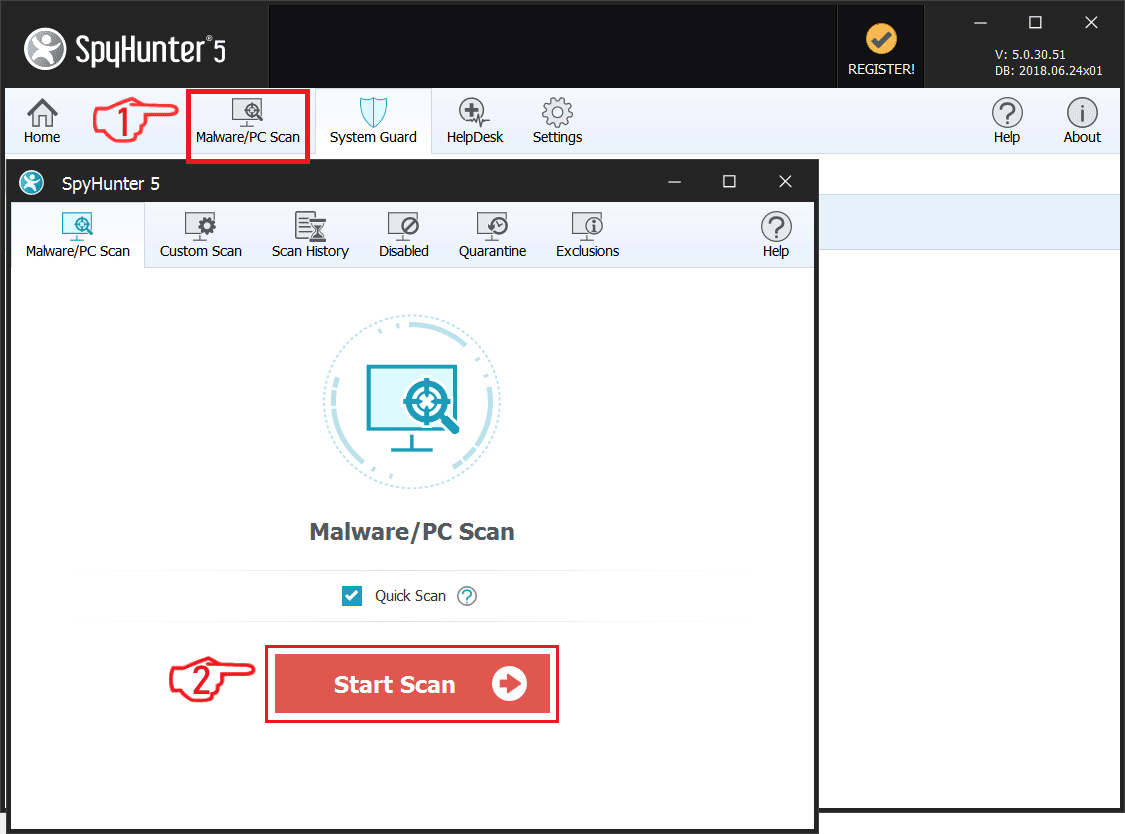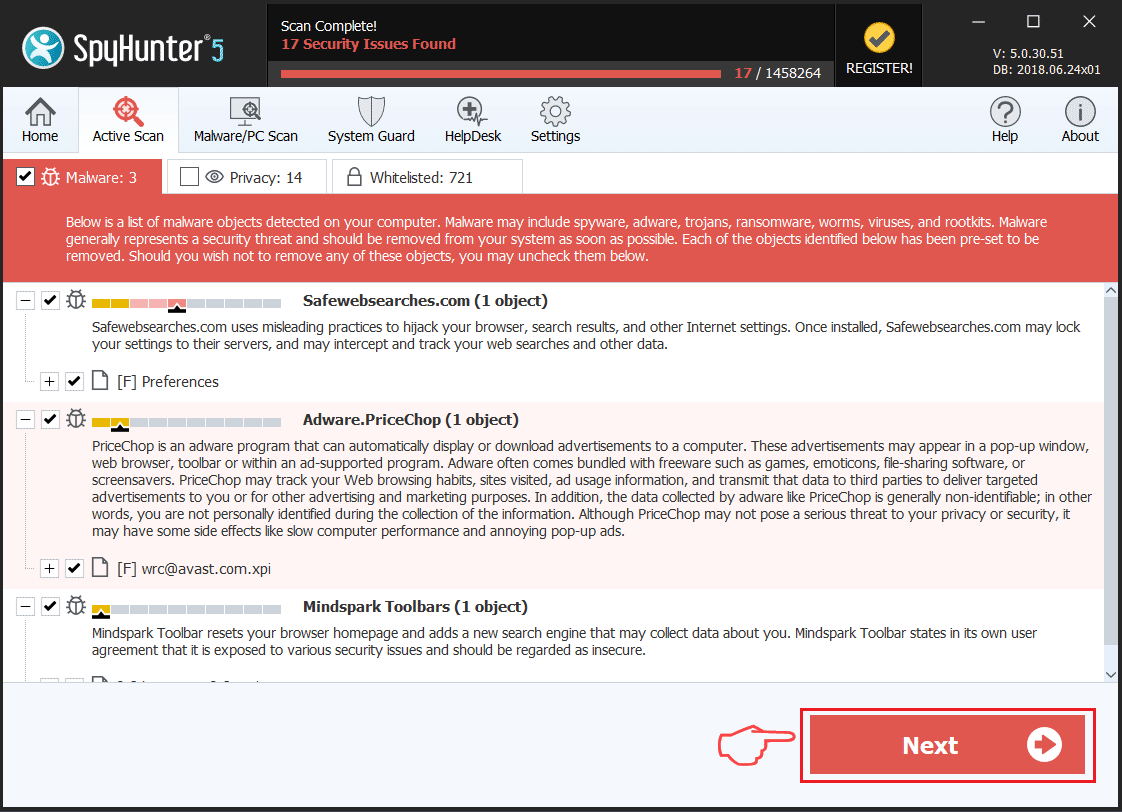The Berbomthum Trojan is a dangerous weapon used against both end users and companies mainly via software and service vulnerability exploits. It is believed that the criminals behind it are highly experienced. Our article gives an overview of its behavior according to the collected samples and available reports, also it may be helpful in attempting to remove the virus.

Threat Summary
| Name | Berbomthum Trojan |
| Type | Trojan |
| Short Description | The Berbomthum Trojan is a computer virus that is designed to silently infiltrate computer systems. |
| Symptoms | The victims may not experience any apparent symptoms of infection. |
| Distribution Method | Freeware Installations, Bundled Packages, Scripts and others. |
| Detection Tool |
See If Your System Has Been Affected by malware
Download
Malware Removal Tool
|
| User Experience | Join Our Forum to Discuss Berbomthum Trojan. |

Berbomthum Trojan – Distribution Methods
The Berbomthum Trojan is a distinct malware threat that has been found to use a different method of operation and distribution to most other examples of this kind. The collected samples are still under analysis and the exact methods of distribution are not known. So far there is not information about the number of infected hosts.

Berbomthum Trojan – Detailed Description
The Berbomthum Trojan is a distinct malware threat that has been found to use a different method of operation and distribution to most other examples of this kind. The collected samples are still under analysis and the exact methods of distribution are not known. So far there is not information about the number of infected hosts.
According to the analysis what is known so far about it is that it infects vulnerable machines via exploits. When a given device has been impacted by it, the virus will run its designated post-infection commands. The Trojan code contains a client instance that will establish a connection to the Twitter social network and certain hacker-controlled profiles. At a first glance the behavior seems to be interaction with certain images posted by these profiles. This may not mean much to the ordinary user or even security team. This was until the experts took a closer look at the images themselves. They were disguised as Internet memes however there was something else. The files had hidden code itself which were inserted via a process known as Steganography. The local client will download the target images and reveal the commands to be run.
So far the Berbomthum Trojan has been found to create screenshots of the current user activity. The configuration of the malware downloads certain configuration from the Pastebin sites. The following commands are supported by the Trojan engine:
- Screen Capture
- Retrieve list of running processes
- Capture clipboard content
- Retrieve username from infected machine
- Retrieve filenames from a predefined path such as (desktop, %AppData% etc.)
There are several typical use cases that can be used with the Berbomthum Trojan as a main tool. The first one is a directed spy campaign — the malware will be used to target a specific company or user and used to spy on their activities. By using the built-in capabilities the malicious actors behind the campaigns can use the collected data for identity theft and financial abuse.
Another distinct use case is the use of the Trojan as a stage dropper for other malware. Having already infiltrated the target devices, the infection engine can bypass the security software and services on the system. This will make it possible for the second threat to execute all of its commands without interruptions. A partial list of possible examples is the following:
- Ransomware — These are among the most dangerous forms of malware that a user can encounter. They will identify sensitive user data according to a list of target file type extensions and process them with a powerful cipher. When this step is complete the users will be blackmailed into paying money for a “recovery and decryption” which they will never receive.
- Cryptocurrency Miners — They can be inserted as modules, called via scripts or downloaded as stand-alone infections. Upon launching they will connect to a hacker-controlled server and download complex mathematical tasks. When they are run on the local machines all system resources may be utilize which will have a tremendous impact on the system stability. When one of the tasks is reported to the servers the malicious actors will receive income in the form of digital currency that will be wired directly to their wallets.
- Browser Hijackers — The other popular threat which is delivered by such carriers is the browser hijacker. This type of threats represent malicious plugins made for the most popular web browsers. When they are run the users will be redirected to a hacker-controlled page and may also find that important settings will be changed.
The Trojan can communicate the collected information and output of the commands back to the malicious actors. Even though Twitter shut down the identified profiles associated it is possible that updated version of it may be created.

Remove Berbomthum Trojan Trojan
If your computer system got infected with the Berbomthum Trojan Trojan, you should have a bit of experience in removing malware. You should get rid of this Trojan as quickly as possible before it can have the chance to spread further and infect other computers. You should remove the Trojan and follow the step-by-step instructions guide provided below.
Note! Your computer system may be affected by Berbomthum Trojan and other threats.
Scan Your PC with SpyHunter
SpyHunter is a powerful malware removal tool designed to help users with in-depth system security analysis, detection and removal of Berbomthum Trojan.
Keep in mind, that SpyHunter’s scanner is only for malware detection. If SpyHunter detects malware on your PC, you will need to purchase SpyHunter’s malware removal tool to remove the malware threats. Read our SpyHunter 5 review. Click on the corresponding links to check SpyHunter’s EULA, Privacy Policy and Threat Assessment Criteria.
To remove Berbomthum Trojan follow these steps:
Use SpyHunter to scan for malware and unwanted programs
Preparation before removing Berbomthum Trojan.
Before starting the actual removal process, we recommend that you do the following preparation steps.
- Make sure you have these instructions always open and in front of your eyes.
- Do a backup of all of your files, even if they could be damaged. You should back up your data with a cloud backup solution and insure your files against any type of loss, even from the most severe threats.
- Be patient as this could take a while.
- Scan for Malware
- Fix Registries
- Remove Virus Files
Step 1: Scan for Berbomthum Trojan with SpyHunter Anti-Malware Tool
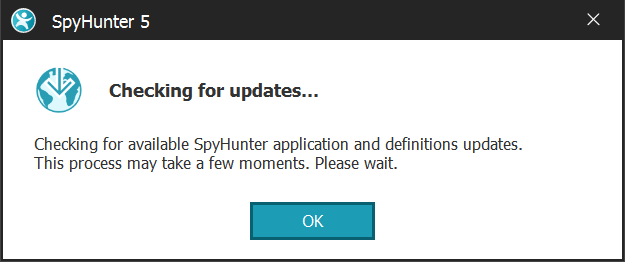
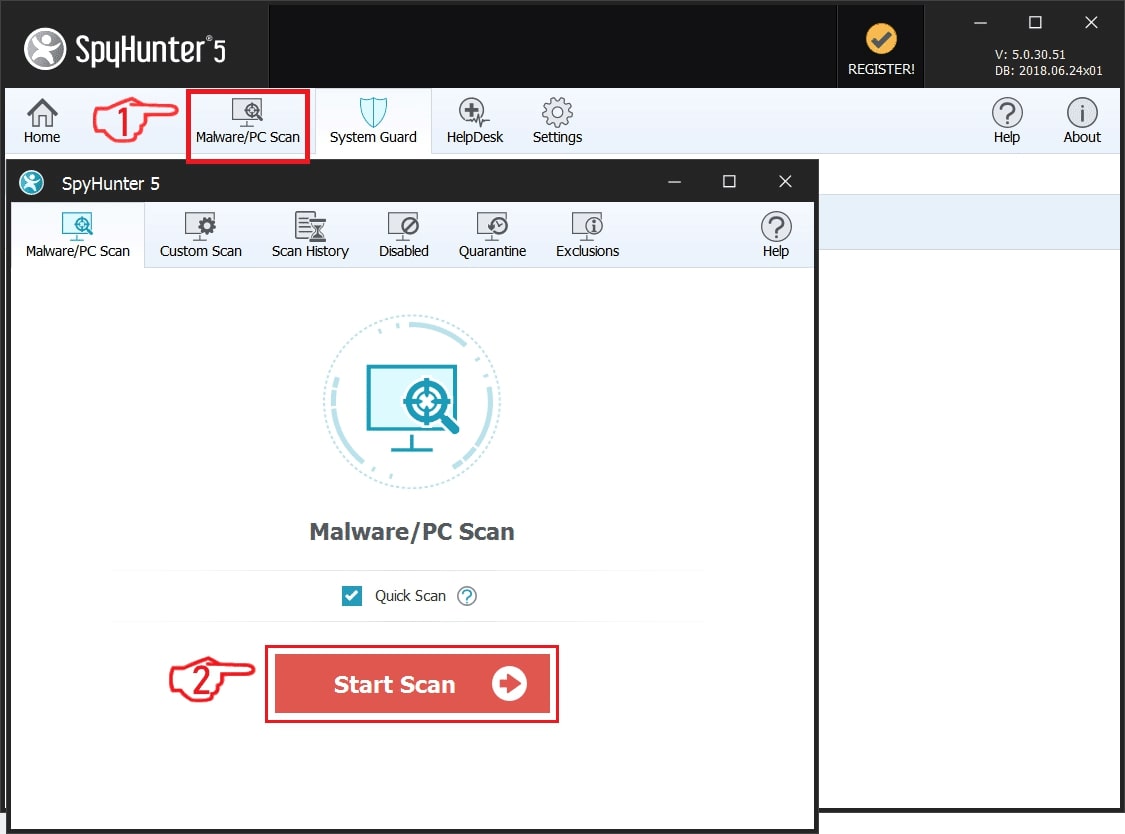
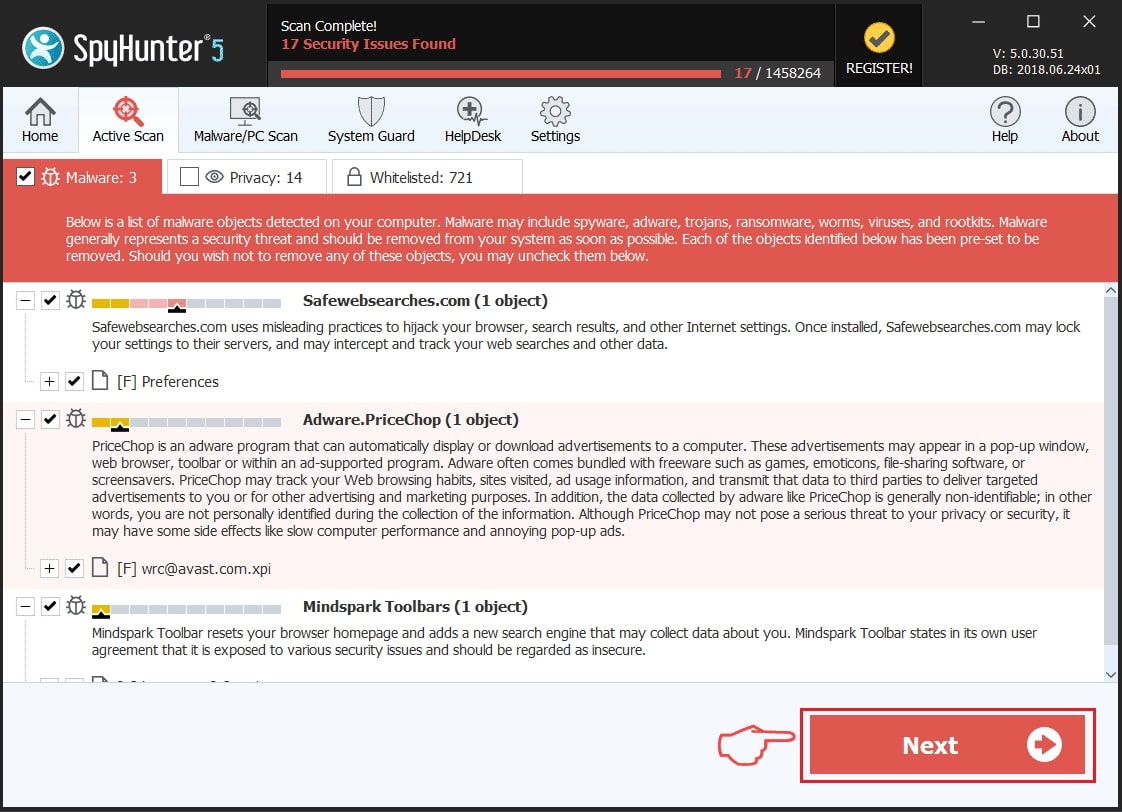
Step 2: Clean any registries, created by Berbomthum Trojan on your computer.
The usually targeted registries of Windows machines are the following:
- HKEY_LOCAL_MACHINE\Software\Microsoft\Windows\CurrentVersion\Run
- HKEY_CURRENT_USER\Software\Microsoft\Windows\CurrentVersion\Run
- HKEY_LOCAL_MACHINE\Software\Microsoft\Windows\CurrentVersion\RunOnce
- HKEY_CURRENT_USER\Software\Microsoft\Windows\CurrentVersion\RunOnce
You can access them by opening the Windows registry editor and deleting any values, created by Berbomthum Trojan there. This can happen by following the steps underneath:
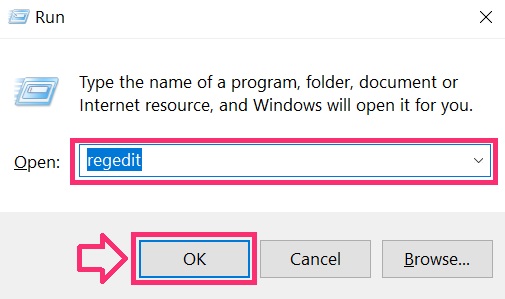

 Tip: To find a virus-created value, you can right-click on it and click "Modify" to see which file it is set to run. If this is the virus file location, remove the value.
Tip: To find a virus-created value, you can right-click on it and click "Modify" to see which file it is set to run. If this is the virus file location, remove the value.Step 3: Find virus files created by Berbomthum Trojan on your PC.
1.For Windows 8, 8.1 and 10.
For Newer Windows Operating Systems
1: On your keyboard press + R and write explorer.exe in the Run text box and then click on the Ok button.
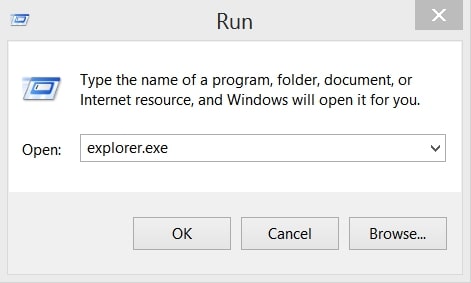
2: Click on your PC from the quick access bar. This is usually an icon with a monitor and its name is either “My Computer”, “My PC” or “This PC” or whatever you have named it.
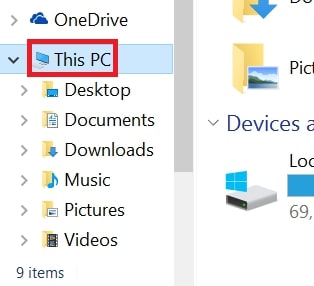
3: Navigate to the search box in the top-right of your PC's screen and type “fileextension:” and after which type the file extension. If you are looking for malicious executables, an example may be "fileextension:exe". After doing that, leave a space and type the file name you believe the malware has created. Here is how it may appear if your file has been found:
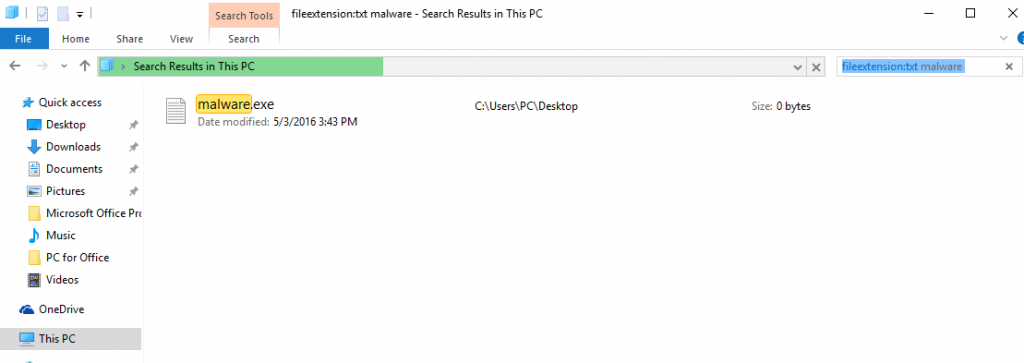
N.B. We recommend to wait for the green loading bar in the navigation box to fill up in case the PC is looking for the file and hasn't found it yet.
2.For Windows XP, Vista, and 7.
For Older Windows Operating Systems
In older Windows OS's the conventional approach should be the effective one:
1: Click on the Start Menu icon (usually on your bottom-left) and then choose the Search preference.
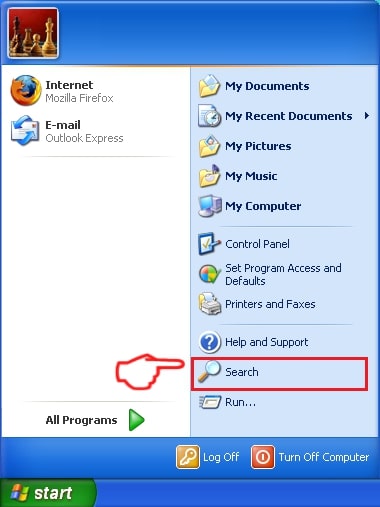
2: After the search window appears, choose More Advanced Options from the search assistant box. Another way is by clicking on All Files and Folders.
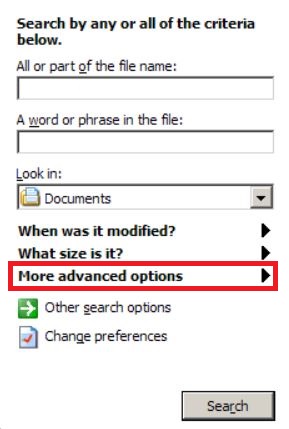
3: After that type the name of the file you are looking for and click on the Search button. This might take some time after which results will appear. If you have found the malicious file, you may copy or open its location by right-clicking on it.
Now you should be able to discover any file on Windows as long as it is on your hard drive and is not concealed via special software.
Berbomthum Trojan FAQ
What Does Berbomthum Trojan Trojan Do?
The Berbomthum Trojan Trojan is a malicious computer program designed to disrupt, damage, or gain unauthorized access to a computer system. It can be used to steal sensitive data, gain control over a system, or launch other malicious activities.
Can Trojans Steal Passwords?
Yes, Trojans, like Berbomthum Trojan, can steal passwords. These malicious programs are designed to gain access to a user's computer, spy on victims and steal sensitive information such as banking details and passwords.
Can Berbomthum Trojan Trojan Hide Itself?
Yes, it can. A Trojan can use various techniques to mask itself, including rootkits, encryption, and obfuscation, to hide from security scanners and evade detection.
Can a Trojan be Removed by Factory Reset?
Yes, a Trojan can be removed by factory resetting your device. This is because it will restore the device to its original state, eliminating any malicious software that may have been installed. Bear in mind that there are more sophisticated Trojans that leave backdoors and reinfect even after a factory reset.
Can Berbomthum Trojan Trojan Infect WiFi?
Yes, it is possible for a Trojan to infect WiFi networks. When a user connects to the infected network, the Trojan can spread to other connected devices and can access sensitive information on the network.
Can Trojans Be Deleted?
Yes, Trojans can be deleted. This is typically done by running a powerful anti-virus or anti-malware program that is designed to detect and remove malicious files. In some cases, manual deletion of the Trojan may also be necessary.
Can Trojans Steal Files?
Yes, Trojans can steal files if they are installed on a computer. This is done by allowing the malware author or user to gain access to the computer and then steal the files stored on it.
Which Anti-Malware Can Remove Trojans?
Anti-malware programs such as SpyHunter are capable of scanning for and removing Trojans from your computer. It is important to keep your anti-malware up to date and regularly scan your system for any malicious software.
Can Trojans Infect USB?
Yes, Trojans can infect USB devices. USB Trojans typically spread through malicious files downloaded from the internet or shared via email, allowing the hacker to gain access to a user's confidential data.
About the Berbomthum Trojan Research
The content we publish on SensorsTechForum.com, this Berbomthum Trojan how-to removal guide included, is the outcome of extensive research, hard work and our team’s devotion to help you remove the specific trojan problem.
How did we conduct the research on Berbomthum Trojan?
Please note that our research is based on an independent investigation. We are in contact with independent security researchers, thanks to which we receive daily updates on the latest malware definitions, including the various types of trojans (backdoor, downloader, infostealer, ransom, etc.)
Furthermore, the research behind the Berbomthum Trojan threat is backed with VirusTotal.
To better understand the threat posed by trojans, please refer to the following articles which provide knowledgeable details.


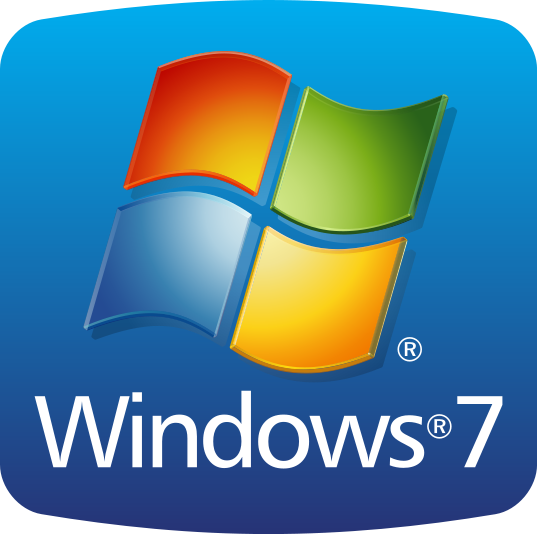 1. For Windows XP, Vista and 7.
1. For Windows XP, Vista and 7.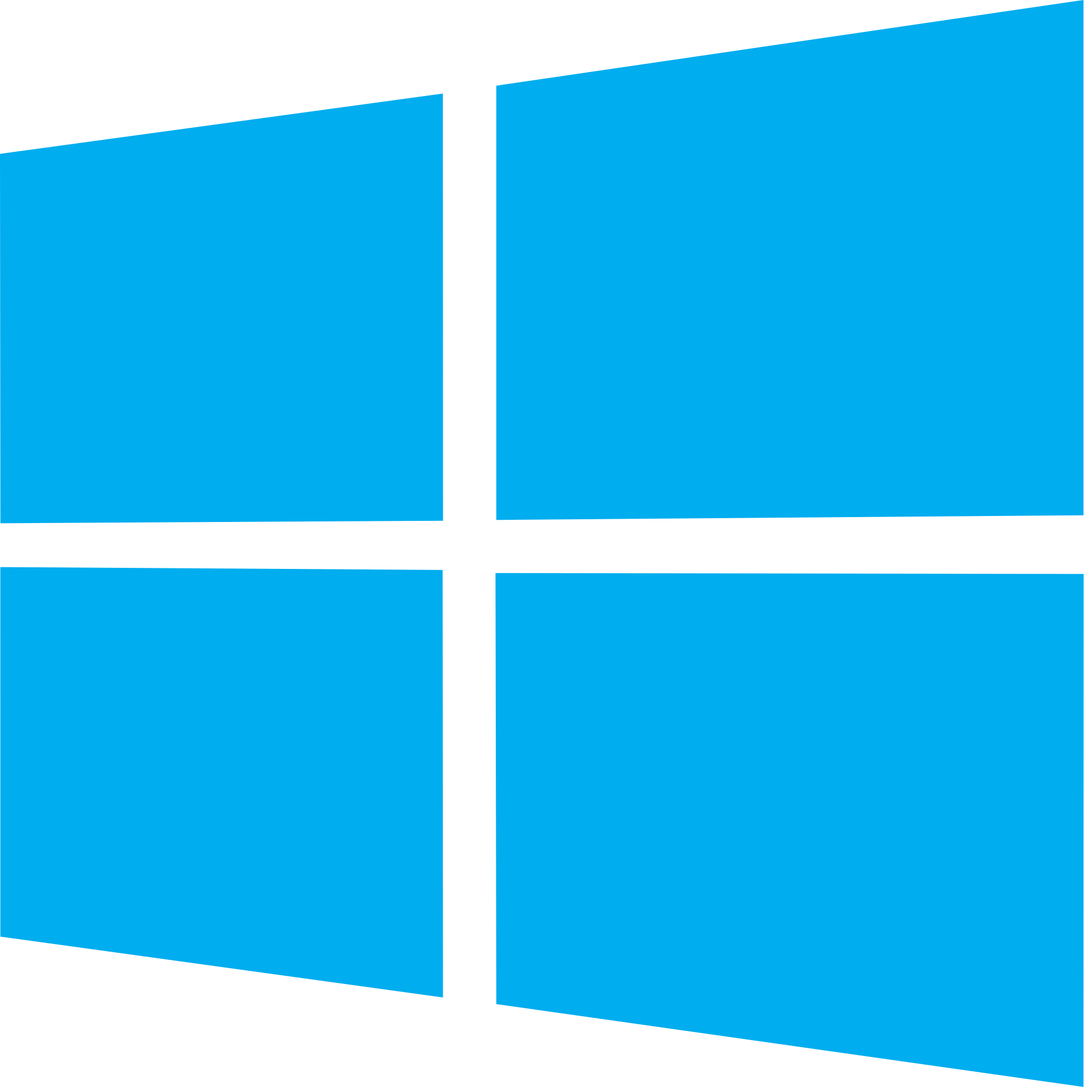 2. For Windows 8, 8.1 and 10.
2. For Windows 8, 8.1 and 10.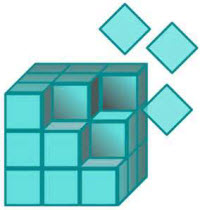 Fix registry entries created by malware and PUPs on your PC.
Fix registry entries created by malware and PUPs on your PC.
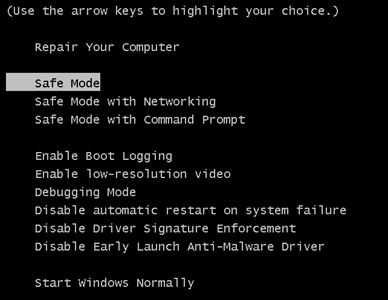
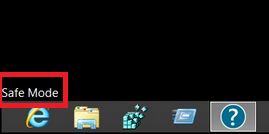
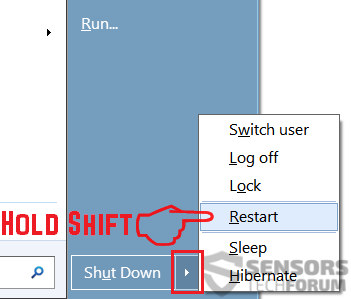
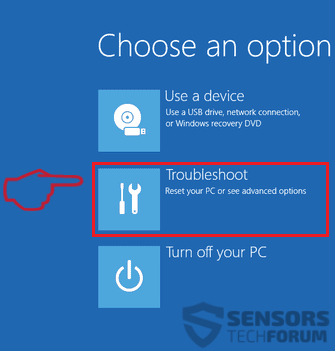
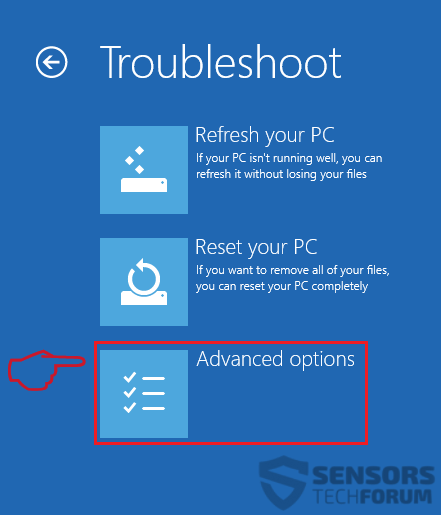
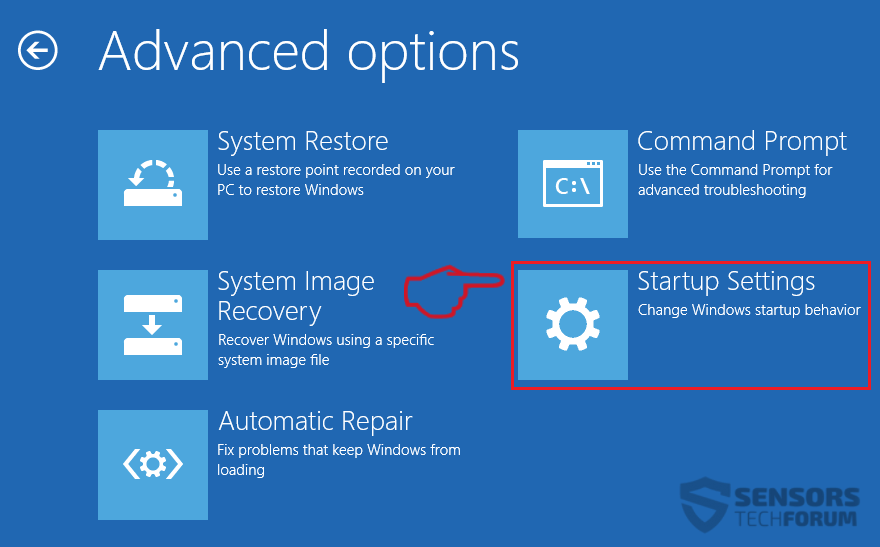
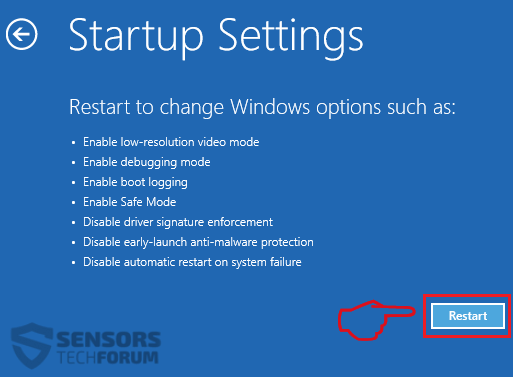
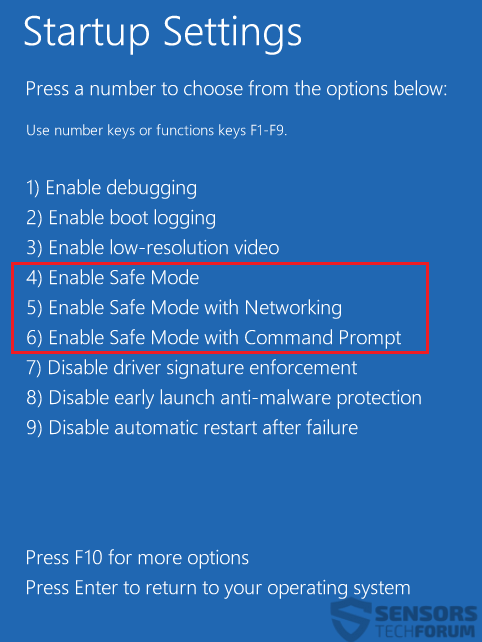
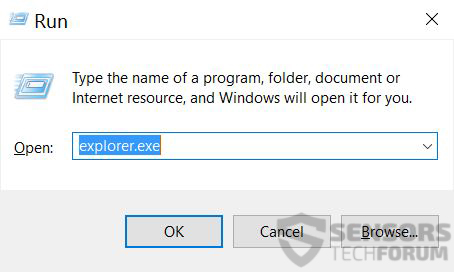
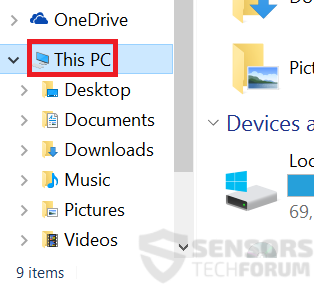
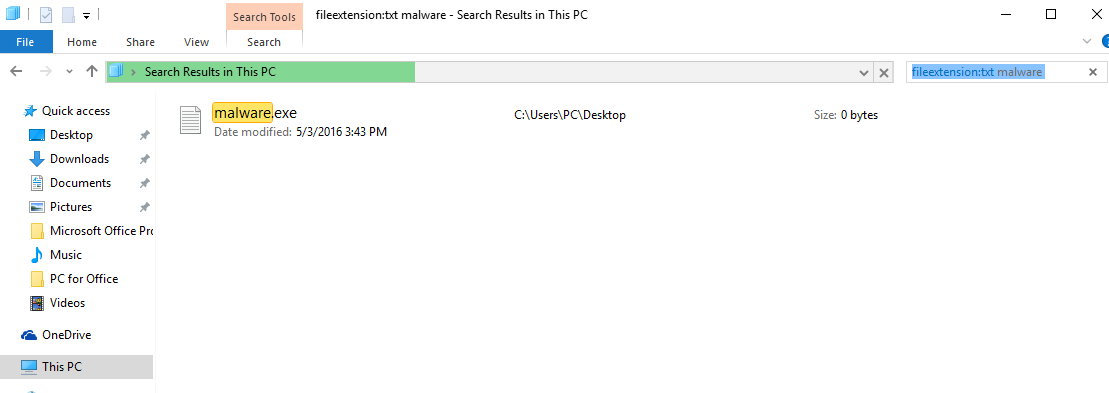
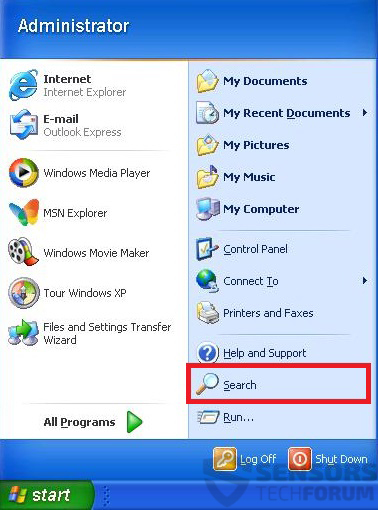
 1. Install SpyHunter to scan for Berbomthum Trojan and remove them.
1. Install SpyHunter to scan for Berbomthum Trojan and remove them.